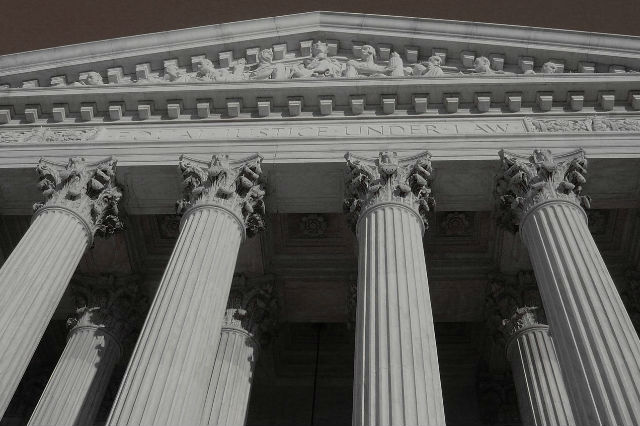In 2002, Royal Dutch/Shell was sued in US federal court by Esther Kiobel, the wife of Dr. Barinem Kiobel - an activist who was member of the Movement for the Survival of the Ogoni People (MOSOP) and eleven other Nigerians from the Ogoni region. The group campaigned against the environmental damage caused by oil extraction in the Ogoni region and for increased autonomy for the Ogoni ethnic group. Barinem Kiobel and other members of MOSOP were detained illegally in 1994, held incommunicado in military custody, then tried by a special court established by the military government using procedures in violation of international fair trial standards, convicted of murder and executed.
The suit alleges that Shell, through its Nigerian subsidiary Shell Petroleum Development Company of Nigeria (SPDC), provided transport to Nigerian troops, allowed company property to be used as staging areas for attacks against the Ogoni and provided food to the soldiers and paid them. The plaintiffs claimed the defendant companies were complicit in the commission of torture, extrajudicial killing and other violations pursuant to the Alien Tort Claims Act (ATCA).
For further background and media coverage on the case, see the Business & Human Rights Resource Centre dedicated page.
The case has proceeded through the US court system for years. A first-ever, on 17 October 2011 the US Supreme Court announced that it would hear an appeal in the Alien Tort Claims Act lawsuit Kiobel v. Royal Dutch Petroleum, Co. (Shell) - the first time the highest court in the United States has reviewed a human rights lawsuit against a corporation under this statute.
IHRB has joined the University of Minnesota Law Human Rights Clinic and experts in submitting an amicus curiae brief to US Supreme Court on the case.
Photo: Flickr-islespunkfan





























How should businesses respond to an age of conflict and uncertainty?
As 2024 began, European Commission President Ursula von der Leyen aptly summed up our deeply worrying collective moment. As she put it, speaking at the annual World Economic Forum in Switzerland, we are moving through “an era of conflict and...
26 March 2024 | Commentary
Commentary by Scott Jerbi, Senior Advisor, Policy & Outreach, IHRB